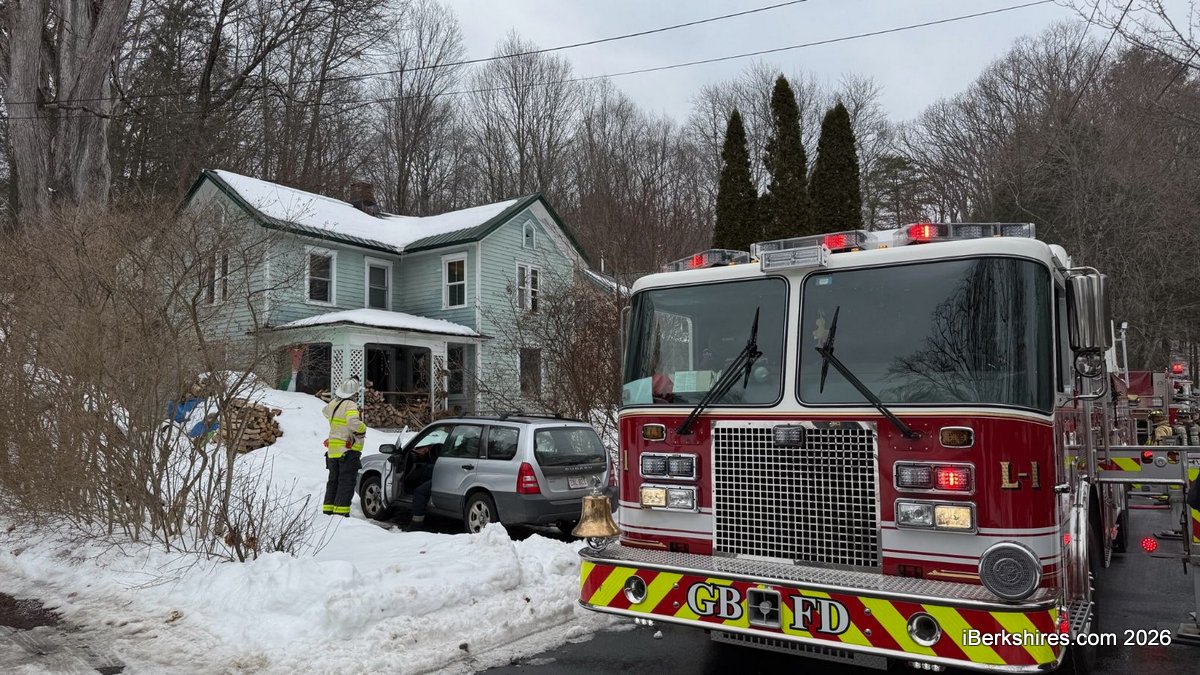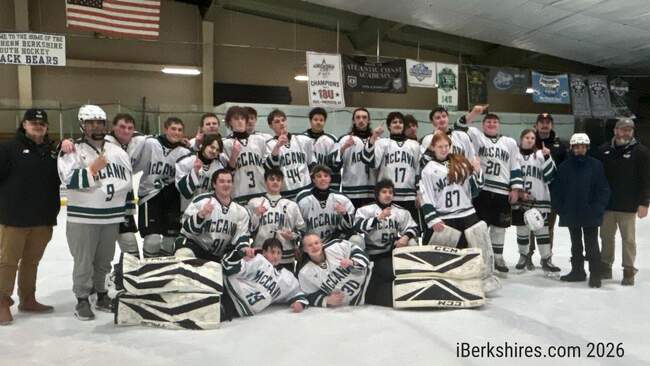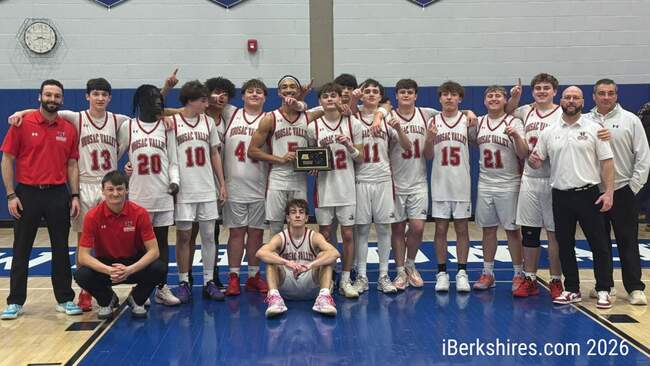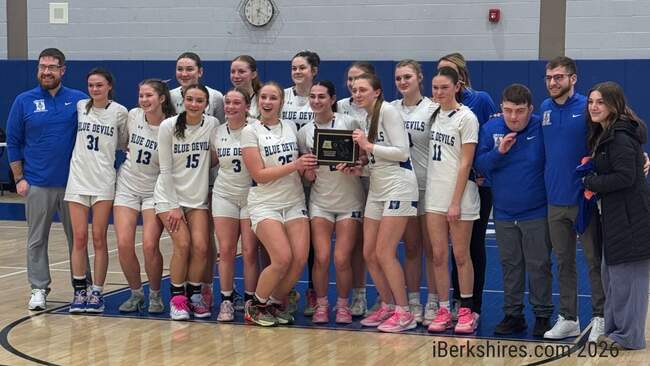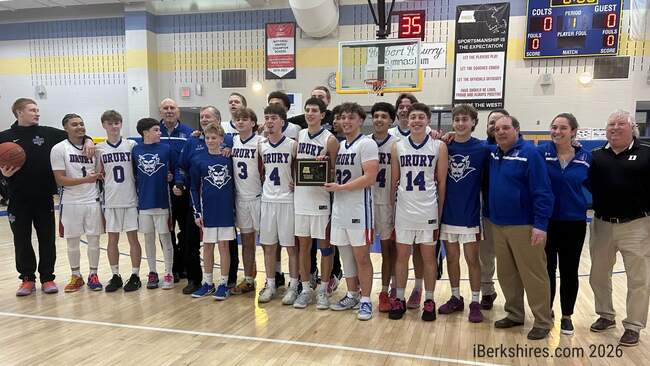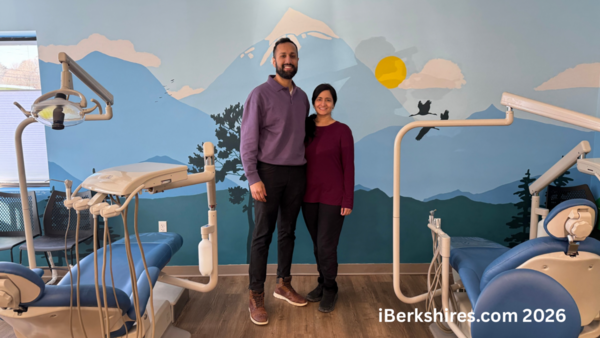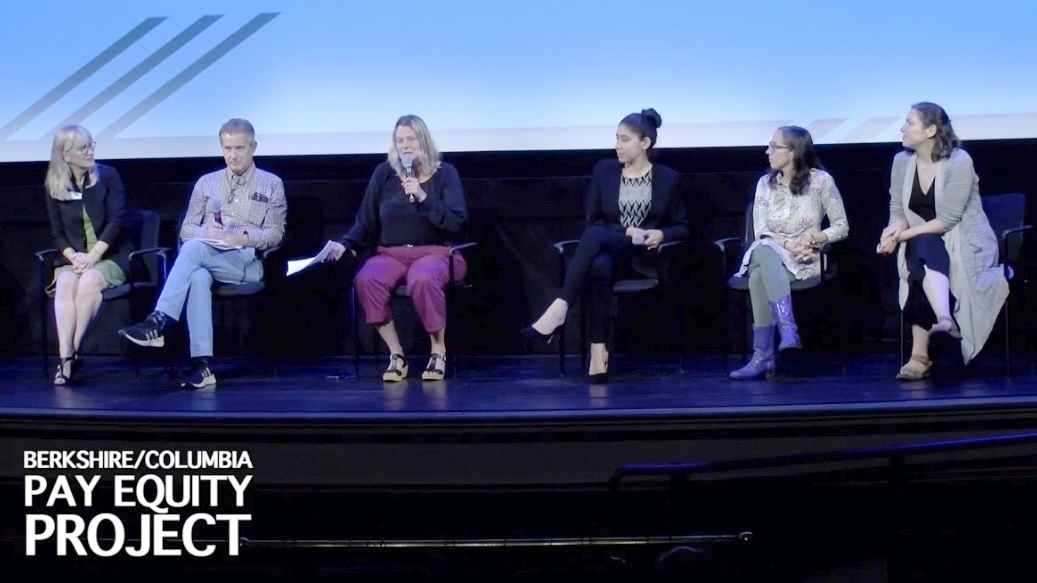
Pay Equity Study Calls For Better Compensation in Arts Sector
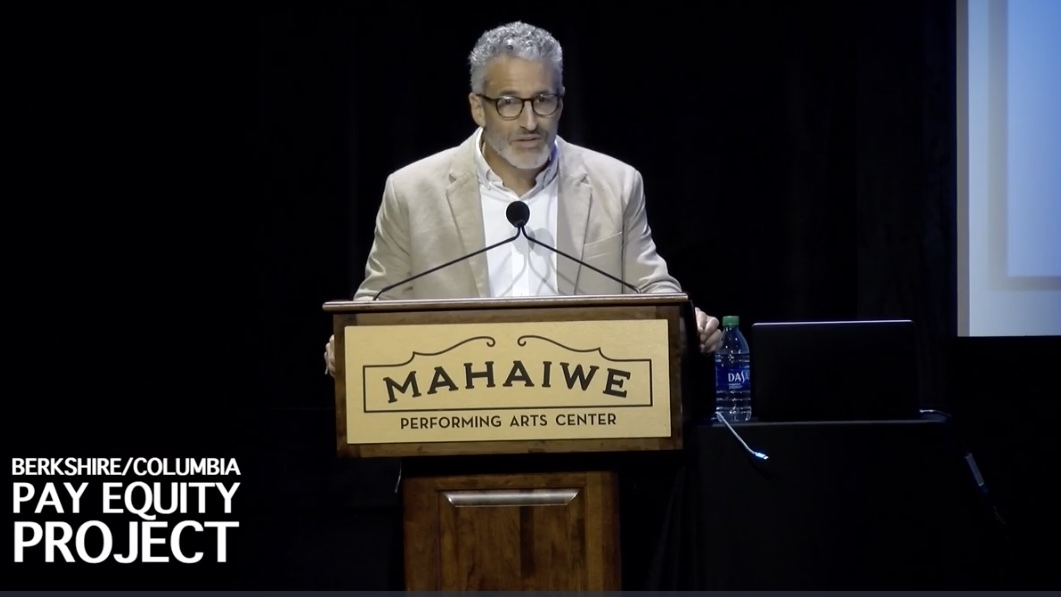
GREAT BARRINGTON, Mass. — The longevity of arts organizations depends on properly compensating employees, sector professionals say.
Last week, the findings of a regional pay equity study led by various local arts organizations were revealed at the Mahaiwe Performing Arts Center.
Project consultant Aron Goldman described the results as "bleak and sobering."
"As long as working in the arts is considered a privilege, only the privileged get to work in this field," he said. "The result isn't just unconscionable, though it is that. It really diminishes the quality of that artistic product and has practical and material implications for the viability of the sector and region."
Over the last couple of years, feedback was gathered from 38 cultural organizations with budgets ranging from $4,000 to $19 million. More than 950 employees weighed in on the issue and how it affects their lives, with about 14 percent being Black or people of color.
"We hope and believe that bringing cultural sector pay equity into the limelight will generate mutual learning, accelerate action, and generate greater accountability," said Janis Martinson, executive director at the Mahaiwe Performing Arts Center.
"Together, we can change this paradigm through recognizing systemic failure for what it is rethinking the balance of people in programs explicitly asking for funding for equitable compensation."
The study found that only about half of respondents' compensation can pay for living expenses and 65 percent of regional arts and culture employers surveyed either have no plans to increase pay equity or say they don't know where to start.
Key findings include: 33 percent of employers report unpaid interns; 25 to 48 percent of entry and mid-level workers lack benefits such as health insurance, paid time off, and a 401(k); 29.5 percent of full-time employees learn less than $50,000 annually and 25.2 percent employees work part time with hourly wages less than a $50,000 full-time equivalent.
"About half of respondents consider their paid benefits unfair and expectations unreasonable. Bleak and sobering," Goldman said.
"Average pay on an hourly basis reported by respondents was about $19 on the hourly basis and $47,000 annually. That $19 number does get in the door with the [Massachusetts Institute of Technology] Living Wage Calculator if you had no children and there are no other unemployed adults in your household and if you check one of those boxes, all of a sudden your compensation is woefully inadequate."
Thirty-three percent of the organizations reported using unpaid interns, which was identified as the "low-hanging fruit" in addressing pay equity in the sector.
"Those who were actually paid were making anywhere between $7.50 and $20 [an hour] and it was great," Goldman said. "Most organizations told us they are paying their interns, but there's still about a third who are not or only some of them are being paid and you'll hear us say that a couple of times, that's the low-hanging fruit here. We've got to knock that off right away. No unpaid internships."
The lead organizations Art Omi, Berkshire Art Center (formerly IS183), Community Access to the Arts (CATA), Flying Cloud Institute, Jacob's Pillow Dance Festival, Mahaiwe Performing Arts Center, WAM Theatre, and Williamstown Theatre Festival developed recommendations to address this issue.
"We see this effort as a long-term commitment, not a one-and-done effort, and today we set the stage with stories, data, and recommendations," CATA Executive Director Margaret Keller said.
"But we do not plan to dictate a single answer, number, or timeline. This is not a zero-sum or a competition. It is a collective investigation and commitment. We want to articulate a vision together about how pay for entry and mid-level workers is going to benefit everyone and the whole sector. We truly believe that everyone who cares about the future of the arts in Berkshire and Columbia counties should care about pay equity in the sector. The strength of our field and the quality of our work depend upon it."
These include transparent salary guidelines, listing rates of pay on all job postings, committing to 40-hour work weeks with exceptions guided by transparent protocols, embedding equity considerations into hiring practices, providing prorated benefits for part-time employees working 20 hours a week or more, and making compensation equity a strategic plan with multi-year financial projections.
"Part of this has to do with changing the culture of organizations," Goldman explained.
"I think a lot of boards are really committed to the principles of equity but simply don't know what's going on and it's our privilege to be able to share some of those experiment experiences. put a human face on it, and I believe that where there's a will there's a way."
He pointed out that there are many opportunities to prioritize equity at the local, state, and federal levels.
"And I'm not so naive as to say that isn't a lot about money. Right?" he said. "So we need to expand funding in this area, both public and private, institutional, individual donors. That also relates to board engagement and it needs to be additional not substitute funding."
A Berkshire Art Center employee reported that she has worked multiple jobs over the years to make ends meet as an educator. She recently moved 25 minutes over the state border into New York because the cost of living in Berkshire County was above her means.
"I can no longer afford to live in the Berkshires, the community that I love and have served for so long," she said.
"I'm happy to report actually that I'm taking on presently, also in the past week, a more full-time position with my organization, which is wonderful and I am so excited to give more. Sadly, it's still barely a living wage so I'm here as a representative of a human who loves these organizations and loves my organization and we just want to be able to pay the rent and feed our children."
Many similar complaints were read from study participants, reporting that they cannot even afford to attend other cultural events in their own line of work, that the cost of living is exorbitant, and that it is hard to imagine making a living doing this.
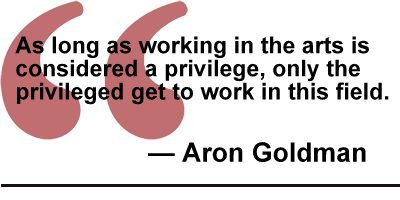
Lisa Donovan, professor in the Fine and Performing Arts Department at the Massachusetts College of Liberal Arts, said some organizations are pulling back from internships if they are not able to pay them.
"This has had a direct impact on my students because there are many many ways to support students and every intern is individual. So I can find often grants to support students, I can offer academic credit, and one of the things that I know for our very diverse campus is that if I'm going to level the playing field in my sphere of influence, internships are a way to do it," she said.
"So when organizations pull back if you can't pay an intern, it means that fewer students will have those opportunities. So just to say that this is a partnership, especially for higher ed, especially for high school interns, that there are many many workarounds and ways that we can support and I would love to continue this conversation."
Barrington Stage's Managing Director Meredith Lynsey Schade said she had addressed this issue by offering internships for credit and paid fellowships.
"I'm new at Barrington, these are not all things that are happening at Barrington but these are things I've implemented in past organizations," she added.
"We talked about health insurance, partial reimbursement. Part-timers, depending upon how many hours they work, we provide access to health insurance for them. We pay for part of that. I think it's really important that we get to a place as institutions where we're paying 100 percent of health insurance. That's a huge benefit for retention. It is a huge draw and I didn't realize how huge it was until I left my last institution and I had so many employees tell me that the reason they stayed was because they had 100 percent of health insurance. That's really important when you're not getting paid a lot of money."
The effort followed an inclusive leadership training cohort through Multicultural BRIDGE.
Founding Director Gwendolyn VanSant recognized the challenge of bringing this conversation forward and honored the participants for having the courage to do so.
"One thing I want to say is to get here, you really have to start in your organization's having the conversations and doing the work, having people that are deeply committed to the work and carrying it forward and keeping those conversations alive so that you can do these things," she said.
On behalf of the cohort, WAM Theatre Executive Director Kristen van Ginhoven said, in addition to trying to do what's right from a moral perspective, they truly believe that there are material benefits to creating stronger and more equitable compensation packages.
"There is tons of research that shows that more diverse organizations perform better. There's also data that shows that it's just good for business and there's also data on the workforce pipeline," she said.
"It's made up of younger people who are seeking workplace diversity and inclusive practices and obviously, workers who have a baseline of financial security are more able to bring their full selves to work so if our region can manage to take on better practices in cultural compensation, which is a key segment a driving segment of our local economy, this will make this a more attractive place for arts professionals to work and live."
The hope is that this incites a larger movement and more organizations participate in the effort.
The full report can be found here.
Tags: cultural economy,

